Kosoglu to Work at the White House!
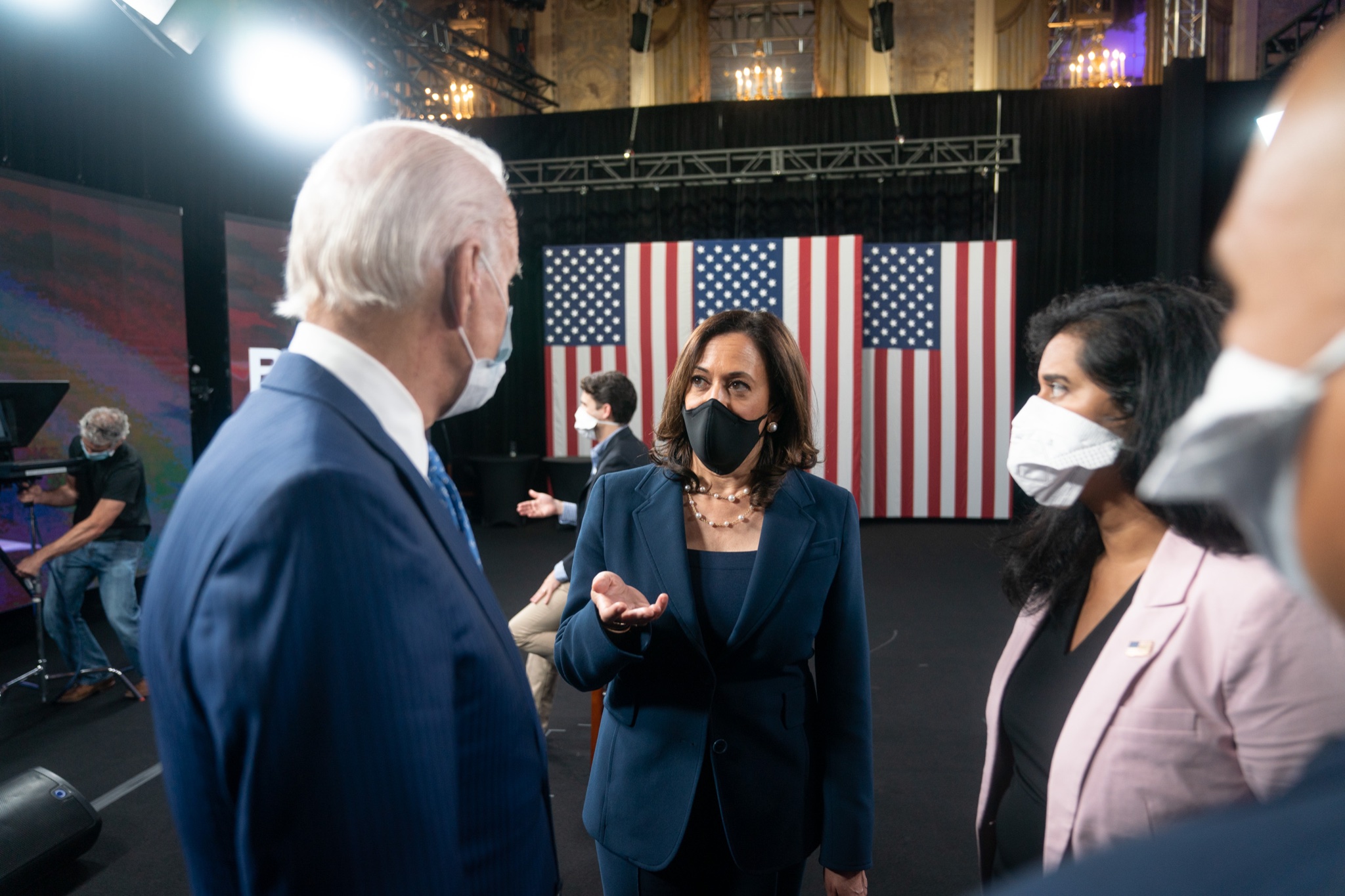

The Turkish American community witnessed the highest number of candidates running for public office in 2020 with 13 members of the community declaring their candidacy for federal, state, and local positions. California led in the most candidates with five followed by New Jersey with two. The following six states had one candidate each—Arizona, Louisiana, Maryland, Massachusetts, Michigan, and Wisconsin.
The scoreboard for the year was four wins and nine losses. Here are the winners:
Aycha Sirvanci Sawa was elected on April 7 as Milwaukee’s City Comptroller (nonpartisan position) in Wisconsin. She is the first Turkish American elected as a chief financial officer for a major American city and the second woman elected to a city office in Milwaukee.
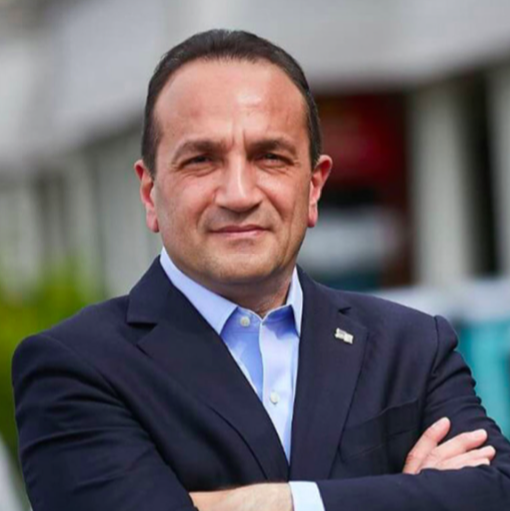
Tayfun Selen (R), was reelected on November 3 as a Freeholder (County Commissioner) of the Morris County Board of Chosen Freeholders (County Commissioners) in New Jersey.
Ben Bartlett, spouse of Yelda Mesbah Bartlett, was reelected on November 3 as Council member (nonpartisan position) of the Berkeley City Council in California.
Leah Ersoylu, spouse of Sarp Ersoylu, was elected on November 3 as Trustee (nonpartisan position) of the Newport Mesa United School District in Orange County, California.
Our thanks and appreciation to the following candidates who were courageous to run for public office and gave a good fight but did not win their elections. We applaud their efforts and strongly encourage them to consider running for public office again.
Aylin Acikalin (D), candidate for Judge of New Orleans First City Court in Louisiana.
John Alpay, ran for Councilmember (nonpartisan position) of the San Jan Capistrano City Council in California.
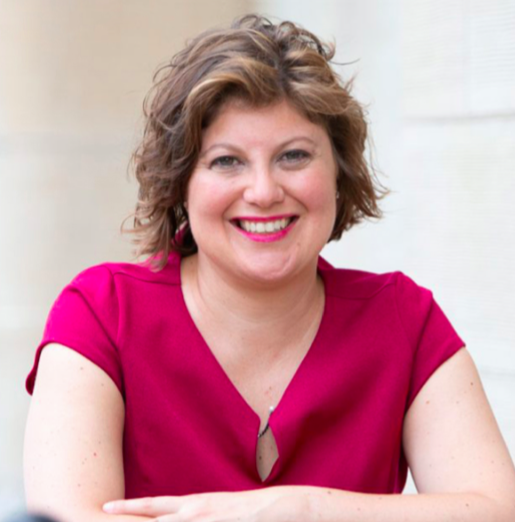
Onur Arugaslan, ran for Trustee (nonpartisan position) of the Mattawan Consolidated Schools Board of Education in Michigan.
Alp Basaran (D), candidate for the U.S. House of Representatives, New Jersey 9th congressional district.
Zarina Kiziloglu, spouse of Kursad Kiziloglu, ran for Councilmember (nonpartisan position) of the Pleasanton City Council in California.
Ajlan Kurdoglu (D), candidate for the Arizona State Senate in Legislative District 17.
Sezin Palmer, ran for Board Member (nonpartisan position) of the Howard County Public Schools Board of Education District 4 in Maryland.
Ceylan Rowe (D), candidate for the Massachusetts House of Representatives, 12th Worcester District.
Cenk Uygur (D), candidate for the U.S. House of Representatives, California 25th congressional district.
* Derya Taskin is selected for State of NJ electoral college delegate from Democratic Party.
Reference: Ten Thousand Turks Campaign
Erbil Gunasti, a Republican Party 2020 Presidential Council delegate and who works actively in American politics, is one of the rare Turkish-Americans who come together with President Trump at events from time to time. Gunasti, who presented a copy of his book GameChanger to President Trump, made a statement to the Turk of America about the upcoming November 3rd Presidential elections.
There are less than two weeks until the election. Your thoughts? Does Trump have a chance to lose? What are your thoughts?
In my opinion, the result of the election had become assured after everything that happened during the first three years of Trump. On the other hand, when we look at what has happened since the coronavirus, I don't think that will change the result. It will increase it in Trump's favor.
Long story short, it is Trump to win the election in 2020 by a large margin. There are three reasons for this.
1) Trump will not increase taxes for the rich and companies. As is well-known, America "worships" money. In this sense, the wealthy Democrats in America are either not going to vote for Biden, or they are going to vote for Trump.
2) Trump showed the Blacks and Hispanics how beneficial he was in his first three years. They became wealthier to a great degree. When we consider that Trump received 10 percent from this section of the electorate in 2016, and it seems certain that his percentage of the votes from this section will increase this time around, Trump is guaranteed to be re-elected. As we know, a Republican Party presidential candidate may not be elected unless they get the votes of at least five percent of the Hispanic and Black people. If he does, the probability that he will be elected will be around 90 percent.
3) As is well-known, the people who own guns in the U.S. are an influential group. They do not always vote in great numbers. They let the chips fall where they may and have faith in their guns. However, for the first time, this group voted in significant numbers when Trump ran for President. That's why Wisconsin, Michigan, and Pennsylvania, known to be the Democratic Party's strongholds, voted for Trump in 2016 and will do so in 2020.
When you think about the damage the Democrats will do to the "Supreme Court," if they win, this shows that Trump will win this election by a large margin. I haven't changed my estimates in this respect. It has only become more robust.
As for the Coronavirus. Trump being admitted into the hospital and discharged after just a couple of days has also ensured that wealthy Democrats, in particular, they now see specific facts clearer on the matter of the cards played by the Democrats until now.
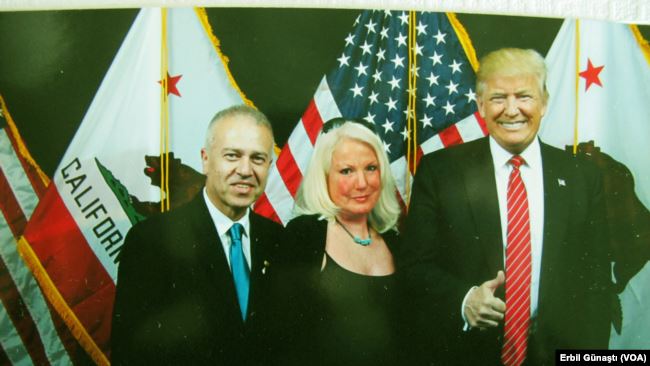
- What would be the course of the relations between Turkey and the U.S. if Trump won the election? What would happen if Biden won?
Even if Trump loses the election, the relations between Turkey and the U.S. are to be built upon "power."
If Trump wins, he will consider bilateral relations important. He will work together with influential leaders, such as President Erdoğan. That does not mean he will do what they say or that he will force them to do what he says. He will negotiate with reason and get results. Long story short, international competition and co-operation will gain momentum.
As I wrote in GameChanger, Turkey has taken the game from "Catch-22" to the "Chicken Game" and let the world know where it will play the "Zero-Sum Game." Everyone knows this now, whether they like it or not. Trump and Biden realize it as well. Trump is aware that he shouldn't play the "Zero-Sum Game" against Turkey. And that nor should Turkey cause trouble about this for Trump.
However, the situation is not the same on Biden's side. Biden will continue to underestimate Turkey, just like the EU is doing, and turn the world into a riskier place. Biden is pushed into this as the Democrats are the puppets of EU, Russia, China, and India, the external sources of power seeking to weaken the U.S. From this point of view, if Biden is elected President, it won't be good for the U.S. and not suitable for Turkey. However, it will be the U.S. that will lose out from this more.
But I don't expect such a possibility. I think Trump will win.
New York Police Headquarters was lit up in purple to show the support for domestic violence awareness and remind the victims of domestic violence that NYP officers in every precinct work hard to bring these suspects to justice. NYPD responds to over 2o0,000 domestic incidents annually, or almost 600 calls a day. DVP police officers face unpredictable, potentially volatile situations, and therefore police officers are trained to help ensure victims' safety and their own. Every NYPD Precinct has a Domestic Violence Team. Over 400 NYPD officers and investigators assist victims of domestic violence in precincts and Housing Bureau Police serving areas in 5 boroughs.
New York City First Lady Chirlane also tweeted the following post" #GoPurpleNYC draws attention to the bravery and strength of survivors of domestic violence, but also the work we all must do to support them and stand by them. I encourage everyone to go to http://NYC.Gov/NYCHope to learn how you can be a better ally to those who need them."
There were 87,512 Domestic Violence Complaints by Precinct, and 1972 Chronic Domestic Violence Complaints by Borough 320 people have been murdered in NYC so far this year.
There are many forms of violence against women, including sexual, physical, or emotional abuse by an intimate partner; physical or sexual abuse by family members or others; sexual harassment and abuse by authority figures (such as teachers, police officers or employers); trafficking for forced labor or sex; and such traditional practices as forced or child marriages, dowry-related violence; and honor killings, when women are murdered in the name of family honor. Systematic sexual abuse in conflict situations is another form of violence against women.
Violence against women is a major public health problem and a violation of human rights. A lack of access to education and opportunity,and low social status in communities are linked to violence against women. Violence by an intimate partner is one of the most common forms of violence against women. A wide range of physical, mental, sexual and reproductive, and maternal health problems can result from violence against women. Many women do not seek help or report their experiences when violence occurs.
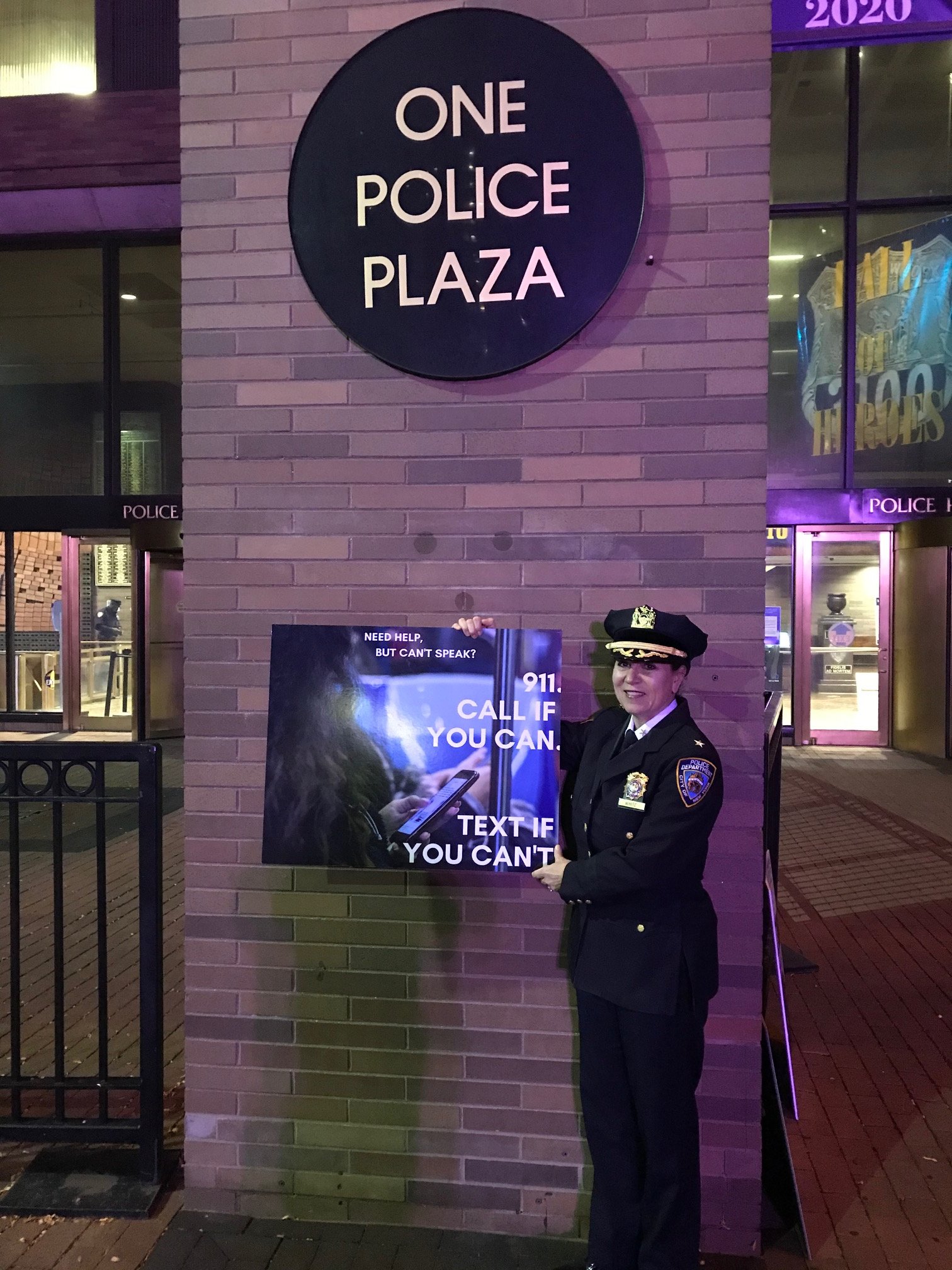
New York City Domestic Violence Hotline
The City's Domestic Violence Hotline provides safety planning, referrals, and connections to emergency housing for domestic violence victims. This assistance is available to both male and female victims—the hotline assists in over 150 languages.
Call 1-800-621-HOPE for the New York City Domestic Violence Hotline, or call 311 and ask for the Domestic Violence Hotline.
If you are in immediate danger, call 911.
The Hearing Impaired 24-Hour Hotline is TDD: 1-800-810-7444
311 Online: You can also access information regarding domestic violence services by visiting www.nyc.gov/311. 311 in New York City's primary source of government information and non-emergency services.
Turk of America interviewed Dr. Acehan,a visiting Professor at George Mason University regarding unknown Ottoman and Turkish traces in the United States.
Why it is important to generate awareness of history between Turkey and U.S.?
Despite the long history of contact between the United States and Turkey, there is currently no operating program or initiative that promotes the history of Turkish-American relations and Turkish immigration from the Ottoman Empire/Turkey to the United States. Many other ethnic communities – such as the Italians, Irish, Chinese, Greeks, Poles, Armenians, Lebanese, and Jews – have successfully created academic centers and/or nonprofit cultural institutions that stress the bonds between their ancestral homelands and the United States, and promote the history of their contributions as immigrants. These stories help their communities balance pride in their homelands with their full participation as immigrants. The popularity of these stories strengthens bonds between the United States and the modern countries that their ancestors came from.
Can you explain further of your initiative objectives and details of the program?
We seek to establish a new program – independently or through an existing Turkish-American nonprofit organization – that will support research and serve Turkish-American communities. Through a website, online video, museum exhibitions, a newsletter, and quarterly events in Washington, D.C., it will seek to educate larger audiences about Turkish-American relations and Turkish-American immigration, both new and old. Many people do not realize that Turks started to come to the United States over a century ago, and new immigrants do not connect their stories to those of older immigrants. Even if a full center cannot be established yet, a nonprofit program would fill an enormous gap for Turkey and for Turkish-Americans.
From the Ottoman times to the Turkish Republic, Turkey and the U.S. maintained good relations in terms of trade and defense. These good relations became visible after the signing of the treaty of navigation and commerce in 1830 and that year, military, economic and political collaboration between the two states began flourishing. There are also many important stories of Turkish-American collaboration, cooperation, and contact during the 20th and 21st centuries.
This program will fill the gap created by the closing of the Institute of Turkish Studies at Georgetown University and the Turkish Cultural Foundation in Washington, D.C. Other Turkish nonprofits in the United States, because of the contemporary situation, have also shifted their activities toward political work, leaving very little organized and sophisticated cultural programming. Having Dr. Isil Acehan work on this initiative at an existing Turkish nonprofit would recover the function of those programs in a way that is not overly limited by COVID-19 and that does not require complete reinvention.
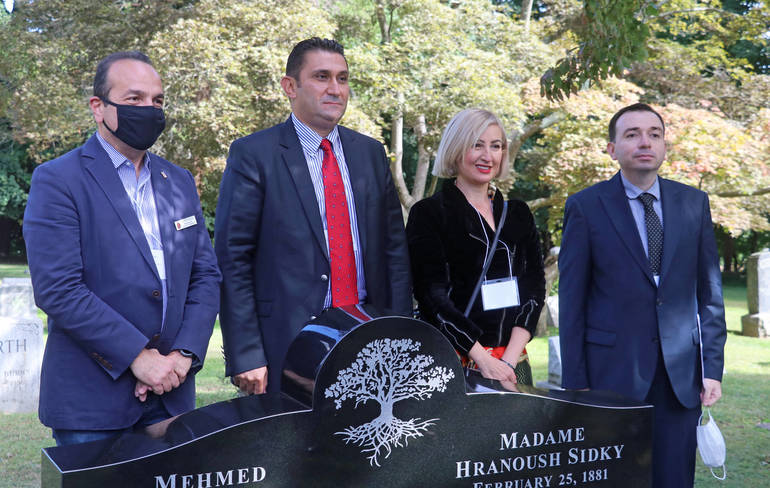
What kind of activities would help to make the program successful?
At its founding, this program will seek to develop a strong online educational presence and to pursue special opportunities and grants that will help the initiative grow and support its parent organization.
The program will have a website that will explain different aspects of Turkish-American history. Through photographs, short essays, and statistics, it will explain the history of Turkish immigration to the United States. It will help visitors understand the different places in the United States that Turks immigrated to, including New York City and New Jersey, industrial Massachusetts, and Detroit. It will explain the timeframe, demographics, and unique features of Turkish immigration to the United States.
Website
The website will also contain information about major events in the history of Turkish-American relations, including the Korean War and cultural exchange programs. It will also connect the history of relations of the Ottoman Empire and the United States to Turkish-American relations after 1923.
Online video
Many of the most interesting Turkish-American stories should be told visually. As part of a new television program produced by Bahçeşehir University, called “Ottoman America,” Dr. Isil Acehan has gained experience in producing media about Turkish-American immigration. She has also established relations with people across the country who desire to tell Turkish-American stories and who often have special artifacts and knowledge.
These stories can be told effectively in short five to ten-minute Youtube videos with an attractive branding. Effective videos will memorialize the stories from individuals who may not be alive much longer. They will also expand the audience for Turkish-American history beyond historians and scholars to regular people all over the world. These videos will also help raise the online profile of the parent organization.
Exhibitions
The program will work to develop an exhibition about Turkish immigration to the United States. Ideally, it would be opened at a major American institution like Ellis Island or the Smithsonian. However, eventually, if it were designed for portability, it could travel the country and be shown at local Turkish clubs and universities. This model was successfully pursued by the Arab American National Museum for an exhibition about the “Little Syria” neighborhood of New York City. This would be an excellent way for the sponsoring organization to build connections with its local constituents.
The program could also seek to cooperate with the U.S. State Department on funding a form of the exhibition that could travel in Turkey as well.
Newsletter
The program will maintain a newsletter that will update supporters on its activities and report about new academic and journalistic work about Turkish-American history. With support, Turkish immigrants, in places like Paterson, New Jersey, could write short articles about the histories of their local communities. Scholars who study Turkish-American history would report their accomplishments, such as published articles, dissertations, and new books. The newsletter will also include interviews with more recent immigrants to the United States from Turkey, connecting recent history to the past.
What would be your budget? How would new establishment would survive?
Although probably not functional at the start, the program would seek to establish a small grant program in the long-term. Through offering small grants and facilitating contact with Turkish universities and government institutions, the program would support the work of students and scholars in the United States and Turkey who study topics related to Turkish-American history. This does not have to focused only on academics. It could also support high school students and undergraduate students.
Who is Dr. Isil Acehan?
Dr. Isil Acehan is an historian and a researcher from Turkey. She holds an M.A and a Ph.D. degree in History from Bilkent University, Turkey. Her focuses are majorly on Ottoman immigration to the US and US-Turkey relations. Acehan received multiple scholarships and research grants to conduct her doctoral and post-doctoral research. Isil was a Fulbright visiting fellow at the Center for Middle Eastern Studies at Harvard University in the academic year 2006-2007. Later in the 2017-2018 period, she was a Post-Doctoral Fellow at the John XXIII Foundation for Religious Studies in Bologna, Italy. Currently, Acehan is a visiting professor at George Mason University, Ali Vural Ak Center for Global Islamic Studies. She is also a Senior Advisor at PASS Global Strategic Consultancy.
There are two questions about which everybody is curious.
When was the first time Turks migrated to the US, and how many Turks are living there now?
There have been numerous stories written, especially on the whereabouts of this migration. However scarce in number, though, we have encountered Americans who claim to be of Turkic origin. The Melungeons are one such group.
Brent Kennedy, the honorary leader of the Melungeon people, who believe that they are the descendants of the Ottoman Levantines, unveiled that he had a suspicion after doctors told him that he had Familial Mediterranean Fever, which is not endemic to the Americas; he discovered that he was of Turkic ancestry after a DNA test.
According to several history professors, the ancestry of the Melungeon community, which claims to have a population of approximately two million people in the US, extends back to around ten thousand Levantine seamen from the Ottoman navy who were taken captive during the 1571 Battle of Lepanto. Some of these shipmen were used as galley slaves by the Spanish and the English, and then they were left to their own fate in America. In fact, it is even claimed that Abraham Lincoln and Elvis Presley may be from Melungeon lineage as well.
Melungeons who initially tried to survive by settling on the shores of Virginia withdrew toward the Appalachian Mountains near present-day Tennessee due to cultural differences with the residents of the region and have mixed in with the native tribes in that region whose language belonged to the Athabascan family.
Kennedy, the honorary leader of the Melungeons, reported that their DNA closely matched that of Anatolian Turks, wrote two books to strengthen the bonds between the two nations during his life, and developed close relations with the Turkish people living in the US. Also, Wise in Virginia, where Kennedy lived, and Cesme in Turkey, became sister towns.
It was announced that Prof. Brent Kennedy, the leader of the Melungeon community believed to be the descendant of Ottoman Levantine soldiers and the director of the UVA-Wise college in Virginia, passed away due to his pre-existing health conditions.
Turk of America published a special issue regarding Melungeons and it was recognized by Melungeon and Turkish-American Communities.
Rest in Peace!
Sierra Nevada Corporation (SNC), the global aerospace and national security company owned by Eren and Fatih Ozmen, was recently awarded a U.S. Army contract for $318.9 million for continued Simple Key Loader (SKL) production, engineering and sustainment support services. The SKL is a hand-held device used to load cryptographic keys into End Cryptographic Units enabling secure communications for U.S. tactical and strategic networks. It has proven itself capable, durable and cost-effective for U.S. Department of Defense (DoD) and Federal Civilian Agencies, NATO Allies and U.S. Coalition Partner Nations worldwide.
MINEOLA, N.Y., Aug. 27, 2020 (GLOBE NEWSWIRE) -- Hanover Bancorp, Inc. (“Hanover” or “the Company”), parent company of Hanover Community Bank, and Savoy Bank (“Savoy”) are pleased to jointly announce that Hanover and Savoy have entered into a definitive agreement pursuant to which Savoy Bank will merge into Hanover Community Bank in a stock and cash transaction valued at approximately $63 million. The agreement was unanimously approved by the boards of directors of both companies. Directors of Savoy have executed voting agreements in favor of this combination. The Savoy directors own approximately 49% of Savoy’s outstanding shares.
İpek Yezdani is an international freelance journalist based in Turkey. Our conversation has been edited for length and clarity.Carlos Santamaria: In your opinion, what are two or three issues that people in Turkey are concerned about regarding the upcoming US election?
IY: There are several very important critical issues for Turkey-US relations. One of them is, of course, Syria. During the Obama administration, there was huge support for the Kurdish YPG forces in Syria. During the Trump administration, this support has continued for a while. The Turkish government considers the YPG as a terrorist organization, but on the other hand, Turkey is an ally, a NATO ally, maybe one of the strongest US allies in the Middle East. We has been fighting against this terrorist organization for decades, so this is a very important issue for Turkey.
Hikmet Ersek has been the CEO of The Western Union Company (NYSE:WU) since 2010, and this article will examine the executive’s compensation with respect to the overall performance of the company. This analysis will also look to assess whether the CEO is appropriately paid, considering recent earnings growth and investor returns for Western Union. According to our data, The Western Union Company has a market capitalization of US$9.3b, and paid its CEO total annual compensation worth US$10m over the year to December 2019. That’s a notable increase of 10% on last year. We think total compensation is more important but our data shows that the CEO salary is lower, at US$1.0m.
By DARON ACEMOGLU (Project Syndicate) CAMBRIDGE – To the interwar generation of the first half of the twentieth century, today’s crises would have appeared rather ordinary. They had seen much worse: the two bloodiest wars in human history, mass unemployment and destitution created by the Great Depression (which still dwarfs this century’s recessions), and far more serious threats to democracy in the form of Soviet communism, fascism, and Hitler’s National Socialism.
Amish Market, which has held up the entire storefront along West Broadway between Park Place and Murray for years, will close permanently — likely by the 26th. The word came from the store manager, Mike Jording.
The short documentary film by the Turkish student named Onay who lives in New York will be shown at the Cannes Film Festival.
Nehir Onay, who is receiving a master's degree education on documentaries in New York, made statements to an Anatolian Agency reporter about the short documentary.
Onay said that his project titled "Sur Les Pointes" which is about a professional ballet institution and the choreography at that institution, was nominated for the category of best short documentary film in Cannes, and added that her short film also received the second best documentary film award at a film festival organized in New York.
Onay indicated that she was not only the director but also the producer of the project from its development to its distribution.
Onay also stated that the short film festival, which will be held online this year due to the coronavirus, will premiere on September 13th. The projections will end on September 21st. She added that the viewers who purchase tickets for the films that will be streamed online will also have the right to vote for the films.
Despite the economic aid packages offered by Congress and Trump administration considered the current epicenter of the Coronavirus pandemic,many well-known companies have been filing bankruptcy postponement applications. After textile retail giants Neiman Marcus, J.Crew, and True religion, another long-established company, JCPenney, requested the bankruptcy postponement. The 118-year-old company has recently had to shut down its 850 stores.
The company first missed the debt payment that was due April 15. Another payment was skipped on May 7. JCPenney's application to the Securities and Exchange Commission stated that the company owes $4 billion in debt, and $17 million worth of interest was paid.

JC Penny CEO Jill Soltau said that they implemented the renewal plan strategy before the start of the pandemic and added, "In this context, we have taken important steps towards rebuilding our company. Our efforts were starting to pay off. However, closing our stores due to the pandemic required us to make a comprehensive move, including the removal of outstanding debt", said Soltau.
List of Companis that have filed for bankruptcy during the coronavirus pandemic:
Stein Mart,Virgin Atlantic,Lord & Taylor,Tailored Brands, Muji U.S.,Brook Brothers, Sur La Table,Hertz,Le Pain Quotidien,US Division,GNC,Neiman Marcus,JC Penny, J. Crew,CEC Entertainment,NPC International.
The economic recession is also expected to be reflected in the data in the real estate market, and despite the record high economic stimulus package, government spending is expected to decline more than ever recorded as local governments transfer their resources to fight the pandemic.
White House Economic Advisor Kudlow: "The U.S. economy is on the right track."
Trump's Economic Advisor Kudlow suggested that the capital gains tax cut that President Trump has recently brought up to question again will help increase the personal incomes and boost overall economic growth.
For the first time in U.S. history, the number of people requesting unemployment benefits increased by 135,000 in the week ending on August 15 compared to the previous week and reached 1,106,000. As the COVID-19 pandemic has impacted the labor market, the number of individuals that applied for unemployment pay in the U.S. had risen to 6,867,00 and set a new record on the week ending on March 28.